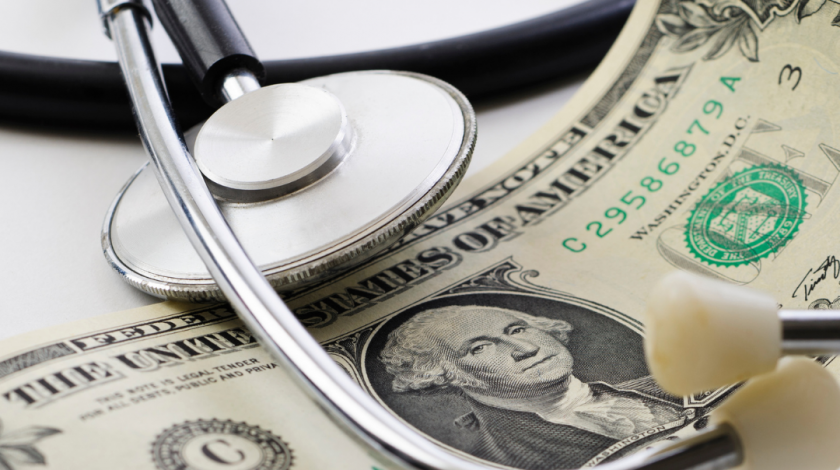One of the most frustrating and difficult decisions a person can face is whether to get the healthcare treatment and/or medication they need or incur the expense of that treatment or medication. Many people find that they cannot afford healthcare and are forced to choose between paying for healthcare and paying for other essentials.
Healthcare: Its Importance and Cost
Healthcare is an industry that is dedicated to maintaining the health of human beings. The healthcare industry is a very broad term used to define the various aspects of medicine and the delivery of medical services. This includes medical and nursing schools, hospitals, personal care, and much more. All these need money. And as a result of that, the healthcare industry is characterized by a lot of money as healthcare is one of the most expensive industries in the world.
The reality is that healthcare costs are high because of a variety of factors, including the following:
- Aging population – In a world with a higher ratio of elderly citizens, the demand for healthcare services will increase. More people will need access to both preventative care, and medical treatment. This will be costly, both financially and in terms of pressure on the healthcare system. Besides, after having surgery or an operation, more people may require in-home care for the elderly, who may need additional hands even for regular chores. Despite the fact that there exist organizations and people can use Care For Family (or any other similar organization) to employ specialists for the same, this does not assist lower the expenses connected with treatments and aftercare.
- Expensive technology – It was recently revealed that many healthcare organizations have spent millions of dollars moving their patient records to electronic systems. The problem with these expensive initiatives is that they do not actually improve the quality of care. There are other aspects of healthcare that need improvements, such as the high cost of medical care, the lack of coordination of care between healthcare providers, and the risks associated with high-cost medical technology. This is a problem that has been growing for years, and there is no easy solution. However, we can look at how expensive technology has affected other industries for a hint of what might happen in healthcare in the future.
- Complex insurance system – The complexity of the current insurance system is one factor that makes healthcare costs high. For example, a typical patient who is insured through a private employer and is seeking care at a hospital. In the process of getting care, the patient will likely be billed a fee-for-service. This means that you are billed for each healthcare professional you see, each test you take, each medication you are prescribed, each service you receive. Similarly, many companies might also provide their employees with healthcare insurances, after careful analysis of the different plans and packages available at healthcare companies like Eden Health or similar ones. The fear however, especially after realising the cost of each hospital trip, does not go away easily and some amount of distrust towards the system might linger in the minds of the working-class public.
- Lack of proper healthcare information. How? Well, Americans lack good information about how to take care of themselves properly. We don’t pay as much attention to our health and understand how to prevent diseases. That is why many Americans end up getting sick and going to the doctor. Many more people are getting put on medications due to health conditions or fitness negligence and will have to take them for the rest of their lives. Instead, to increase health awareness, we can regularly visit our doctor for full body checkups, discuss health concerns with a nutritionist, and perhaps check out healthcare podcasts and articles to maintain physical fitness. Small lifestyle changes such as following a workout regime, eating healthy food, and seeing a medical professional time-to-time can resolve or prevent a lot of physical conditions.
As the United States continues to negotiate healthcare reform, the debate over how healthcare costs affect people to receive treatment and medication is growing. As people face higher health costs, they are less likely to receive treatment for preventable and chronic illnesses, leading to higher rates of heart disease, stroke, and cancer.
How Does the Cost Affect People in Getting an Insurance?
Health care is one of the biggest issues of the decade. The debate of how to reduce the cost of health care is an important one but is also one of the most complicated to figure out.
Healthcare costs are so high in the United States that many people can’t afford to get treatment or medication. Of course, the availability of Medicare and Medicaid helps low-income families, the elderly, and people with disabilities to a great extend. Since the Medicaid program is stratified at the state level, people have better access to it. The California Medicaid program ‘Medi-Cal’ helps with a no-cost or low-cost health coverage program. However, even with so many government-regulated health coverages, the situation is worrisome. The healthcare costs are rising so rapidly, and the cost of medical insurance is rising faster than inflation that it is becoming impossible to afford medical care. A lot of people have to pay for their care by themselves without any help from health insurance.
People who do not have insurance can still receive treatment at the emergency room. However, this is more expensive, and the person must pay the full bill without any help from insurance companies. Unfortunately, this bill can be very expensive, preventing the person from receiving the treatment they need. However, there are other options, including community clinics, a lower-cost health program for people who cannot afford private insurance and who meet certain eligibility requirements, and even free medical care for those who qualify.


